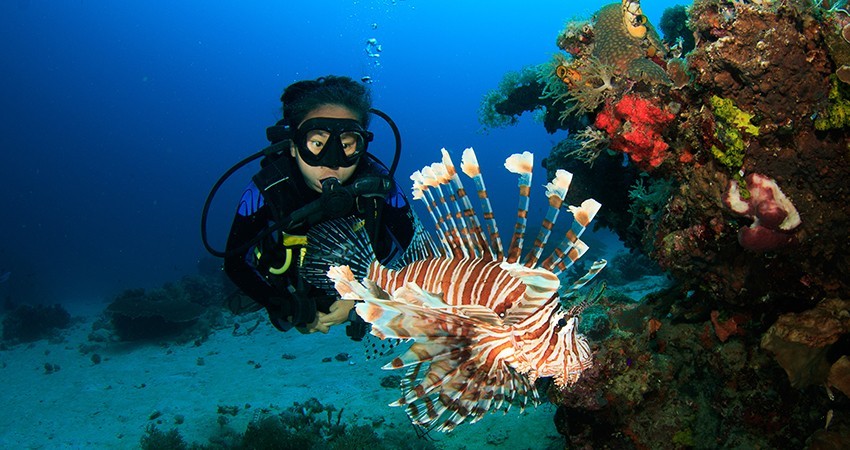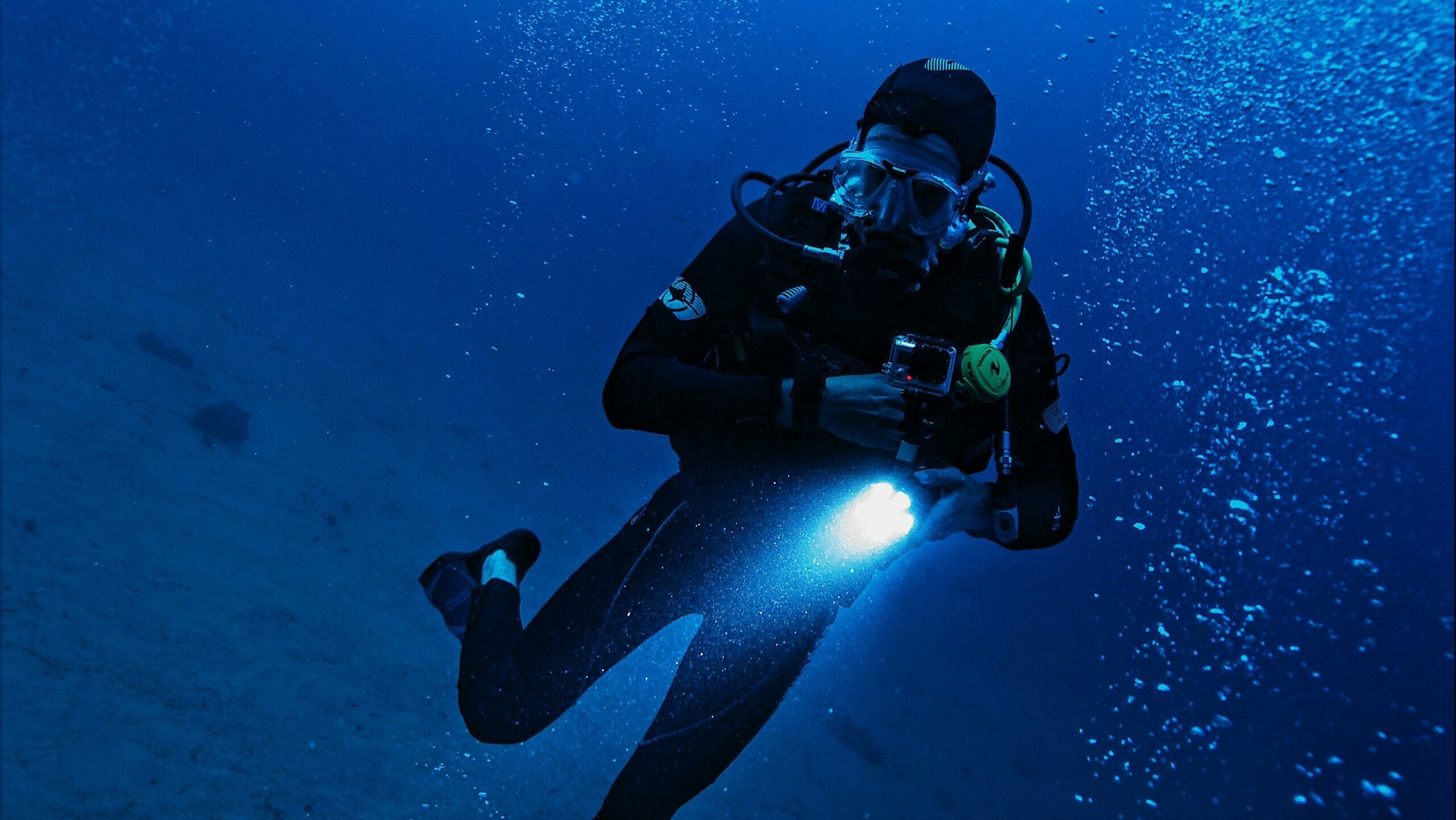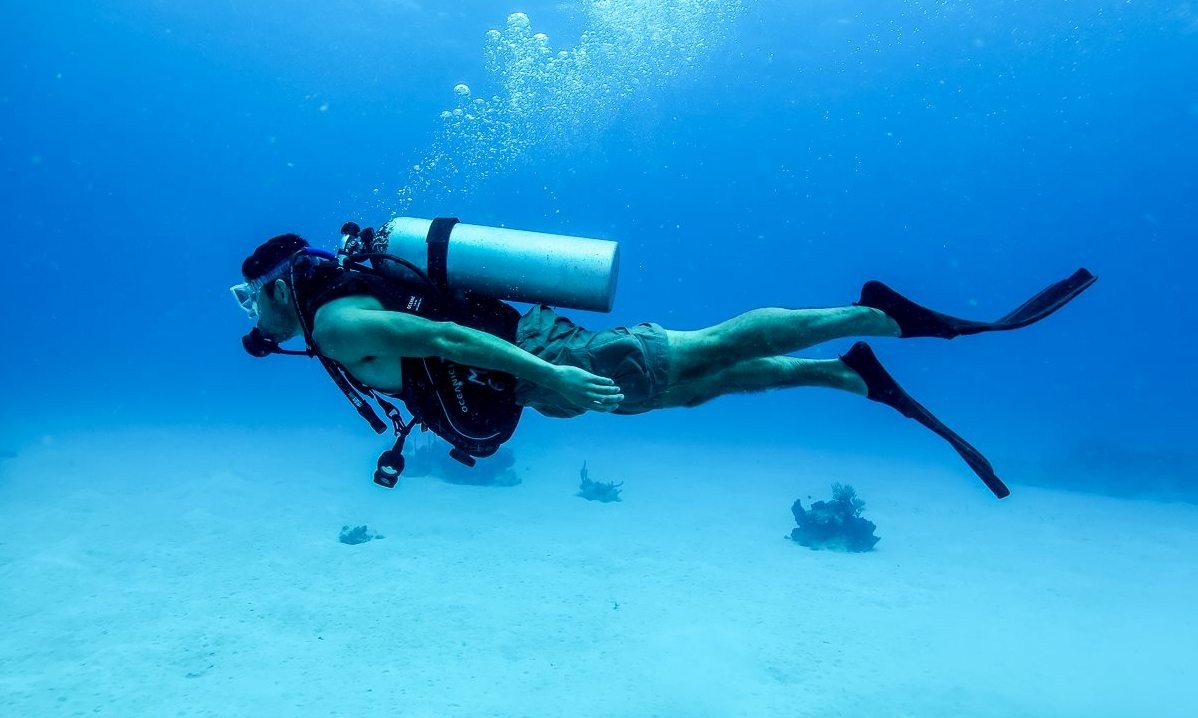Diving Sites in Port Blair



.jpg)
-
Jul 11, 2025
Scuba Diving Gear for Beginners
It’s a total game-changer one minute you’re flopping around in the shallows, the next you’re living out your Jacques Cousteau dreams. But honestly, scuba diving is scuba diving gear. You don’t need some James Bond gadget collection, just the basics that won’t betray you underwater. The first thing is to get a mask that actually fits your face. If it leaks or dogs, you’ll spend half your dive cursing and wishing you were on land. Been there, suffered that. And yeah, snorkels matter too. Nobody wants to waste tank air while bobbing on the surface, so don’t skip it, even though it feels a bit dorky. Wetsuit? Absolutely. Even warm water can get chilly after a while, and nobody’s trying to turn into a human popsicle. Fins are non-negotiable too. You’ll feel weird at first, but once you get the hang of them, you’ll practically zoom.
The real thing is that BCD ((Buoyancy Control Device) chooses the vest that puffs up or deflates so you can hover like a pro. Pair that with your regulator (the magic tube that gives you air), and you’re set. Oh, and get yourself a dive computer or at least a gauge. It’s like the speedometer and gas light for your underwater adventure. You want to know how deep you are and how much air you’ve got left. Trust me. If you’re not ready to drop cash on a full setup, don’t sweat it. Renting is totally normal. But if you’re gonna splurge, start with a mask and fins. Personal fit is everything there. The rest you can collect as you go, like Pokémon cards but way more useful. At the end of the day, the right gear just helps you focus on the good stuff floating around, gawping at fish, and feeling like you’re in another world. And honestly? That’s the whole point.
Choose for Comfort and Water Temperature
Picking out scuba diving gear for the first time? Kinda feels like prepping for a moon landing. There’s just so much stuff, tubes, flippers, wetsuits, and honestly, who knows what half of it even does at first? But hey, don’t freak out. The real trick is just figuring out what makes you feel chill and not like a clunky robot underwater. First up: your mask. If it’s pinching your face or leaking, nope. Hard pass. You want it to sit there like it was made for you, no drama, just clear views of all the weird and wonderful fish. Fins? This is a personal thing.
Some folks swear by those chunky open-heel fins with boots, especially if you’re splashing around in colder spots. Then there’s the full-foot, slip-’em-on-and-go kind, which are perfect for tropical vibes. Try some on, walk around like a penguin and find what feels good. Wetsuit? Don’t just grab whatever’s on sale. Think about where you’ll actually be diving. Warm water? Thin suit. Chilly? Go thicker. If it fits right, you’ll be toasty and not waddling around like a sausage in a casing. Biggest thing: don’t stress. You’ll figure out what works as you go.
When it comes to BCDs and regs, honestly, most folks just rent ’em at first ’cause, yeah, they’re kinda pricey and a bit intimidating. But if you’re thinking about buying your own, pick stuff that just makes sense to you, nothing that feels like you’re lugging a mini-fridge on your back. You want to glide, not wrestle with your gear underwater. And dive computers? Total game-changer for newbies. No need to do math in your head (who wants that on vacation?) Just glance down and you’re set.
Seriously, forget about what looks flashy or what some show-off on YouTube is pushing. You need gear that fits you, not just your ego. Try it on, mess around with it, bug your instructor for their two cents, and if you can, take it for a test-dive before you drop any cash. The right setup isn’t just about safety, it’ll make you feel like a rockstar underwater. And that’s when diving really gets fun.
Why does the Right Gear Matter in Scuba Diving?
Picking out the right scuba gear isn’t about flexing for your feed or whatever it’s literally what keeps you from looking like a total clown underwater. You’re dropping in on a whole alien world down there, and your gear? That’s your backstage pass. If your mask is leaking or your wetsuit got you feel like a stuffed bratwurst, forget about spotting any majestic sea creatures; you'll just be fumbling with your kit and muttering some choice words into your regulator. Nobody, and I mean nobody, wants to be the diver fussing with their straps while everyone else is just vibing with the fish like it’s no big deal. When your stuff actually fits the way it should, you stop thinking about it. Suddenly it’s just you, floating around, breathing slow, kind of tripping out on how weirdly quiet it is. That’s when a dive goes from “yeah, I made it” to “yo, did you see that eel?” No joke, getting your gear sorted is the best move you’ll ever make down there.
Essential Scuba Gear for Beginners
1. Mask - Mask fitting guide? It is one of the most important parts of the kit. It is considered as one of the most important elements because this is the part which will protect your face from the underwater chaos. Choosing a right mask will keep your face dry and protected under the water.
2. Snorkel - You’ll need a snorkel in scuba diving for your own betterment. Conserve tank air with snorkels. It’s super easy to use when you’re on the surface before a dive, helping you conserve tank air while waiting to descend. A comfortable mouthpiece and a purge valve to easily clear water during dive.
3. Wetsuit or Dive Skin - Choosing a wetsuit based on water temperature. It keeps you dry, saves your skin from getting shredded on rocks or coral, and, bonus, you float a bit easier. Sometimes a 3mm shorty or a dive skin will do the trick, but if things get chilly, just grab a full-length wetsuit with some beefy neoprene like, 5 to 7mm.
4. Fins - Fins basically let you cruise through the water without feeling like you just ran a marathon. Trust me, if you’re new to diving, comfort matters way more than you’d think nobody wants to deal with gnarly blisters when you’re supposed to be having fun.
5. BCD (Buoyancy Control Device) - Beginner BCD guide? This thing’s basically a fancy vest that lugs your air tank around and lets you play with your buoyancy like some underwater magician. Want to float up? Pump in some air. Need to sink? Let some out. You must be able to wave your arms and breathe.
6. Regulator & Octopus - Your regulator’s basically your underwater lifeline with no pressure, right? It’s the thing that lets you breathe down there without turning blue. The “octopus” is your spare, the one you hand to your buddy if stuff hits the fan.
7. Air Tank- Just a heads - up, though: your tank’s packed with good ol’ compressed air, not some fancy pure oxygen. That tank? Yeah, it’s basically your underwater bestie. Treat it right and optimize it correctly.
8. Dive Computer - Why beginners need a dive computer? Picture this thing as your nerdy little wrist buddy underwater, basically a smartwatch, but for people who like hanging out with fish. It keeps tabs on how deep you’ve gone, how long you’ve been down there, and when it’s time to get your butt back up before things get sketchy.
9. Weight System - Wetsuits and BCDs basically turn you into a human pool float, so yeah, you need some extra heft to actually get underwater. That’s where those chunky weights come in. If you’re just starting out, let your instructor deal with the whole weight thing. They’ve seen enough rookies rocket to the surface to know exactly how much you need.
10. Gloves, Hood, and Dive Boots - These are usually optional, depending on water temperature. But they offer warmth and protect you from scrapes or stings (just don’t touch coral ever).
How Safety is Handled in Scuba Diving?
Scuba diving got this reputation for danger, but honestly, it’s way more buttoned-up than you’d think. People running these dives? Total pros. The second you sign up, they’re all over your safety walking you through gear, drills, the whole nine yards. And it’s never just you out there; you’re always paired up with a buddy because, let’s be real, two sets of eyes are better than one when you’re forty feet under. The instructors? They’ve seen it all. If anything weird pops up, they’re on it before you even notice.
The gear’s no joke either: backup air (they call it an “octopus,”), dive computers glued to your wrist, the works. Before you hit the water, everyone’s huddled together, running through a briefing and double-checking every strap and hose. There’s a bit of ritual to it, and it works. Honestly, once you see how much effort goes into making sure you’re good, you can finally chill out, take a breath, and soak up that wild underwater world.
Tips for a Safe Scuba Diving Experience
- Always double-check your gear before every dive.
- Never hold your breath, always breathe slowly and continuously.
- Equalize your ears early and often during descent.
- Stay close to your dive buddy and communicate clearly.
- Watch your depth, time, and air supply regularly.
- Move slowly to conserve air and avoid stirring up sediment.
- Don’t touch marine life, look, don’t disturb.
- Practice good buoyancy control to protect the reef and yourself.
- Listen carefully during the dive briefing; it's your roadmap underwater.
- Relax and enjoy the experience, confidence grows with every dive.
Explore the Marine Life with Scuba Diving
Scuba diving is basically like teleporting to another planet except you’re just a few meters underwater. Everything up top? Gone. The noise, the chaos, the endless pings from your phone poof, see ya. All you’ve got is that weird Darth Vader breathing (which, honestly, is kind of soothing after a while) and this crazy, slow-motion ballet of fish and coral and whatever else decides to show up. Like, one minute you’re flailing around trying to get your fins on, next thing you know, a turtle’s side-eyeing you like you’re the weird one. It’s not just about “adventure” either. Sure, there’s the adrenaline rush, but there’s also this bizarre sense of being part of something way bigger than yourself. You’re not just watching nature, you’re smack in the middle of it, drifting along with the current, trying not to look like a total rookie.
And, let’s be real, scuba’s the ultimate lesson in chilling out. You try rushing underwater and see how that works spoiler: it doesn’t. You learn to breathe slowly (or else, panic), trust your gear, and just let go. It’s meditative, in a “my mask is fogging up again” kind of way. Whether you’re floating through bathwater-clear tropics or poking around some shipwreck that’s seen better days, every dive hits you with this mix of awe, calm, and that little-kid sense of discovery you thought you’d lost. Bottom line? Scuba diving doesn’t just flip your idea of “nature” upside down; it kind of messes with how you see everything else, too. And honestly, I think that’s the magic.
Don’t Stress, Just Dive: Real Advice for New Scuba Divers
All this gear talk can get overwhelming, right? Like, suddenly you’re supposed to know the difference between a snorkel and a submersible pressure gauge spoiler, I totally didn’t at first. Even that salty dive pro who looks like they sleep underwater? Yeah, once upon a time, they were just some newbie getting water up their nose and fogging up their mask every five seconds. Nobody’s born with fins on, you know? Honestly, those first dives are pure chaos in the best way. You’re out there, flapping around, figuring out how to breathe without sounding like Darth Vader, and oops there goes your mask strap again. Maybe you accidentally high-five a fish with your face. It happens.
That’s half the fun. Here’s the deal: if you’ve got a mask, fins, and a sprinkle of patience, you’re basically set. Forget that mile-long gear checklist, most of it just sounds fancy to mess with your head. Stick with your instructor, try not to tangle yourself in hoses, and take it easy. Baby steps, my friend. Drifting over neon coral, poking around some spooky old shipwreck, or just losing your mind ‘cause you’re breathing underwater for the first time it’s something you never forget. The right gear isn’t about looking slick, it’s about having the time of your life and not accidentally swallowing half the ocean. So slap on that mask, chill, and just enjoy the madness.
Diving Sites in Port Blair
Diving Sites in Havelock Island
Diving Sites in Neil Island


.jpg)

